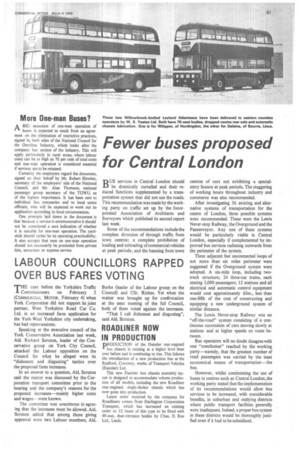More One-man Buses?
Page 63

If you've noticed an error in this article please click here to report it so we can fix it.
A BIG extension of one-man operation of
buses is expected to result from an agreement on the elimination of restrictive practices, signed by both sides of the National Council for the Omnibus Industry, which looks after the company bus section of the industry. This will apply particularly in rural areas, where labour costs can be as high as 70 per cent of total costs and one-man operation is considered essential if services are to be retained.
Certainly the employers regard the document, signed on their behalf by Mr. Robert Howlett, secretary of the employers' side of the National Council, and Mr. Alan Thomson, national passenger group secretary of the TGWU, as of the highest importance. It has been sent to individual bus companies and to local union officials, who will be expected to work out its application according to local circumstances.
One principle laid down in the document is that because a service is unremunerative it Should not be considered a sure indication of whether it is suitable for one-man operation. The yardstick should rather be its operating practicability. It also accepts that men on one-man operation should not necessarily be precluded from private hire, excursion or express service.
























































































































































